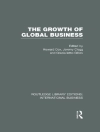Next Generation Entrepreneurs is the first volume of the Success Factor Modeling series by renowned author and consultant Robert Dilts. Success Factor Modeling TM is a methodology whose purpose is to identify key characteristics and capabilities shared by successful entrepreneurs, teams and ventures. It then applies these to define specific processes and skills that can be used by others to greatly increase their chances of producing impact and achieving success. Next Generation Entrepreneurs presents models, tools, exercises, illustrations and case examples – of both world famous and everyday entrepreneurs – that will help you understand how to create your own 'Circle of Success’ and create a business aligned with your life purpose. Entrepreneurs are individuals who are willing to take personal, professional and financial responsibility and risk in order to pursue opportunity. The entrepreneurial spirit has been a driving force for social and economic growth and advancement throughout human history. In recent years, a new generation of entrepreneurs has emerged who are interested in much more than financial gain. Characterized by people like Steve Jobs, Richard Branson and Elon Musk, this new generation of entrepreneurs is also deeply committed to living their dreams and making a better world through their projects or ventures. By combining personal ambition with the desire for contribution, growth and fulfillment they have made game-changing and world-changing innovations that have transformed the way we live and do business. This book is for people who have a similar vision and are willing to make a conscious decision to become more passionate, purposeful and creative, and to learn to become a 'Next Generation Entrepreneur.’
Spis treści
Introduction – Success Factor Modeling
A Changing World
Meeting the Challenges of Change
Modeling
Success Factor Modeling TM
Basic Steps of the Success Factor Modeling Process
Chapter 1 – From Vision to Action: Key Levels of Success Factors
Summary of Success Factors
Critical Success Factors Questionnaire
The Allegory of the Six Stone-Workers
Holons and Holarchies
Ego and Soul
Vision, Mission, Ambition and Role
The Example of the 'Miracle on the Hudson’
Aligning Ego and Soul
Exercise: The COACH State – Integrating Ego and Soul into a 'Holon’
Ego, Soul and Organizations
Defining Vision, Mission, Ambition and Role
Exploring Your Own Vision, Mission, Ambition and Role
Ego and Soul Worksheet for Individuals
Reflections and Conclusion
Chapter 2 – Next Generation Entrepreneurship and the SFM Circle of Success™
The Silicon Valley Phenomenon
Entrepreneurship
A New Generation of Entrepreneurs
The 'Three Jewels’ of Zentrepreneurship
Five Keys to 'Creating a World to Which People Want to Belong’
Modeling Next Generation Entrepreneurs
The SFM Circle of Success TM
The SFM Circle of Success and the Five Keys to Creating a World to Which People Want to Belong
Integrating Passion, Vision, Mission, Ambition and Role with the SFM Circle of Success
Self and Identity
Customers and Market
Team Members and Employees
Stakeholders and Investors
Partners and Alliances
The Influence of Context and the 'Field of Innovation’ on the Circle of Success
The Law of Requisite Variety and the Field of Innovation
Success Factor Case Example: Powerset’s Barney Pell
Success Factor Case Example: IBM’s Samuel Palmisano
Conclusion: Starting Your Own Circle of Success
Chapter 3-Becoming a Success
What is Success?
Win-Win Results
Success and 'Self’
The 'Spirit’ of Prosperity
Being True to Yourself and Your Dreams
Taking Risks and Facing Failure
Famous Failures
Perceiving Failures as Feedback
Finding Support and Sponsorship
Gathering Your Allies
Dealing with Uncertainty and Getting 'Lucky’
The Importance of Preparation and Practice
Cultivating Your 'Luck Factor’
Success Factor Case Example: Tidal Wave Technologies’ Mark Fitzpatrick
Mark Fitzpatrick’s Circle of Success
Success Factor Case Example: Cindana Turkatte
The Role of Women as Entrepreneurs
Reflections on the Success Factor Case Examples
Knowing Yourself
Identity Level Elicitation Process
Expressing and Anchoring Your Passion
Exploring the Center of Your Circle of Success Through the Identity Matrix
Generative Complementarities
Transforming Polarities into Generative Complementarities
The Identity Assessment Template
Chapter Summary
Chapter 4 – Creating the Future
The Journey of Identity
Entrepreneurial Vision
Identifying Potential Customers and Their Needs
Generative Vision Exercise
Creativity Catalysts
'More of/Less of’ Chart
Formulating a Vision Statement
Connecting Your Vision with Your Charisma
Communicating Your Vision with Authentic Charisma
Clarifying the Mission of Your Venture or Team
Identifying Potential Team Members
Communicating Your Mission
Mission Statement Worksheet
Ambition, Vision and Motivation
Setting Your Ambitions
Ambition, Passion and the Identity Matrix
Role Models, Competitors and Advisors
Identifying Potential Stakeholders
Assessing Motivation Worksheet
Establishing the Role of Your Project or Venture
Identifying Potential Partners
Exploring Win-Win Partnerships
Vision and Ambition Worksheet for New Ventures and Projects
Enriching Your Circle of Success
Examples of Defining a Generative Circle of Success
Success Factor Case Example: Apple’s Steve Jobs
Chapter Summary
Conclusion – Making Your 'Elevator Pitch’
What is an Elevator Pitch?
Preparing Your Pitch
Example of Pitch Preparation for the 'Generative Venture Community
Presenting With Passion
Next Steps
O autorze
Robert Dilts has had a global reputation as a leading behavioral skills trainer and business consultant since the late 1970s. A major developer and expert in the field of Neuro-Linguistic Programming (NLP), Robert has provided coaching, consulting and training throughout the world to a wide variety of individuals and organizations.
Robert has pioneered the principles and techniques of Success Factor Modeling TM, and has authored numerous books and articles about how they may be applied to enhance leadership, creativity, communication and team development.
Past corporate clients and sponsors have included Apple Inc., Microsoft, Hewlett-Packard, IBM, The Old Mutual, Société Générale, Bank of America, The World Bank, Alitalia, Telecom Italia, RAI Italia, Lucasfilms Ltd., Ernst & Young, AT Kearney, Salomon, The American Society for Training and Development, EDHEC Business School and the State Railway of Italy. He has lectured extensively on coaching, leadership, organizational learning and change management, making presentations and keynote addresses for The International Coaching Federation (ICF), HEC Paris, The United Nations, The European Forum for Quality Management, The World Health Organization, The Milton H. Erickson Foundation, Harvard University and the International University of Monaco. In 1997 and 1998, Robert supervised the design of Tools for Living, the behavior management portion of the program currently used by Weight Watcher’s International.
Robert was an associate professor at the ISVOR Fiat School of Management for more than fifteen years, helping to develop programs on leadership, innovation, values and systemic thinking. From 2001-2004 he served as chief scientist and Chairman of the Board for ISVOR DILTS Leadership Systems, a joint venture with ISVOR Fiat (the corporate university of the Fiat Group) that delivered a wide range of innovative leadership development programs to large corporations on a global scale.
A co-founder of Dilts Strategy Group, Robert was also founder and CEO of Behavioral Engineering, a company that developed computer software and hardware applications emphasizing learning strategies and behavioral change. He is also co-founder, with Dr. Stephen Gilligan, of the IAGC (International Association for Generative Change). Robert has a degree in Behavioral Technology from the University of California at Santa Cruz.












